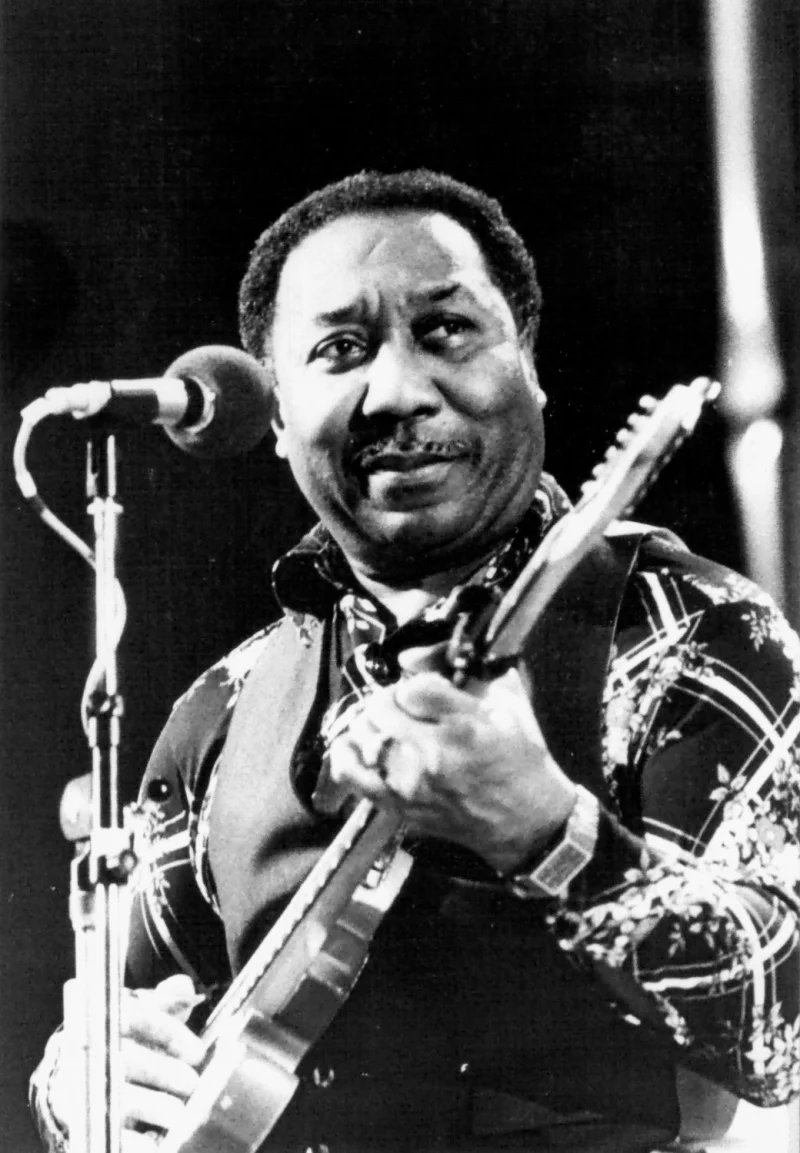Short Summary
Muddy Waters, born McKinley Morganfield, was a seminal figure in the world of blues music and is often hailed as the "Father of Modern Chicago Blues." He rose to fame by blending the rich sounds of Delta blues with electric instruments, revolutionizing the genre. His innovative style and charismatic presence influenced countless musicians and played a crucial role in the blues’ evolution and its spread to a broader audience worldwide.
Early Life & Education
Muddy Waters was born on April 4, 1913, in Rolling Fork, Mississippi, but grew up in Clarksdale. Raised by his grandmother, he was given the nickname "Muddy" due to his love of playing in the muddy waters of nearby fields. As a child, he was exposed to music through the sounds of the Southern blues scene, with artists like Son House and Robert Johnson influencing him. Waters taught himself guitar and harmonica, honing his craft in the juke joints of the Mississippi Delta, a fertile ground for the developing blues genre.
Career Highlights
His career took a significant turn in 1943 when he moved to Chicago, where he began playing in clubs and recording music. In 1948, he recorded "I Can't Be Satisfied" and "I Feel Like Going Home," which became hits and established his reputation. Over the years, he formed a band that included legendary musicians like Little Walter and Willie Dixon. Waters’ electric blues sound, characterized by passionate vocals and powerful guitar riffs, became a template for future blues and rock musicians. His influence extended to the Rolling Stones, who named themselves after his song "Rollin' Stone."
Major Achievements
- - Inducted into the Rock and Roll Hall of Fame in 1987 for his pivotal role in shaping the blues and rock genres.
- - Won six Grammy Awards, including one for Best Ethnic or Traditional Folk Recording in 1971.
- - His song "Rollin' Stone" inspired the name of the iconic rock band, the Rolling Stones.
- - Recognized as one of the greatest artists of all time by Rolling Stone magazine.
Famous Quotes
- "I got my own style, but it's a mixture of all the styles."
- "The blues had a baby and they named it rock and roll."
Interesting Facts
- His first instrument was a harmonica, which he learned to play by ear.
- He was recorded by musicologists Alan Lomax and John Work III for the Library of Congress in 1941.
- The Rolling Stones' first live performance featured a cover of Waters’ song "Rollin' Stone."
- He was a farmer before becoming a full-time musician.
Legacy / Influence
Muddy Waters left an indelible mark on music, influencing not only blues but also rock and roll. His pioneering electric blues sound paved the way for future artists and bands, including Eric Clapton, Led Zeppelin, and the Rolling Stones. Waters’ ability to blend traditional blues with modern elements ensured the genre's survival and evolution, securing his status as a musical legend.
FAQ
Q: Why is Muddy Waters famous?
A: He is famous for revolutionizing blues music by introducing electric instruments and influencing rock and roll.
Q: What was Muddy Waters' real name?
A: His real name was McKinley Morganfield.
Q: What band was inspired by Muddy Waters' song?
A: The Rolling Stones were inspired by his song "Rollin' Stone" for their band name.












